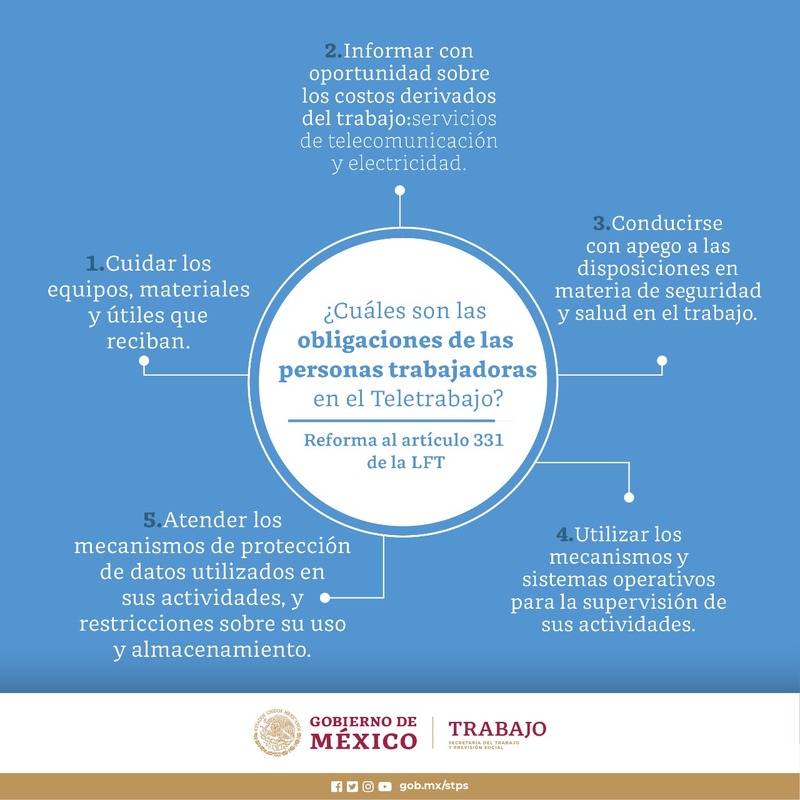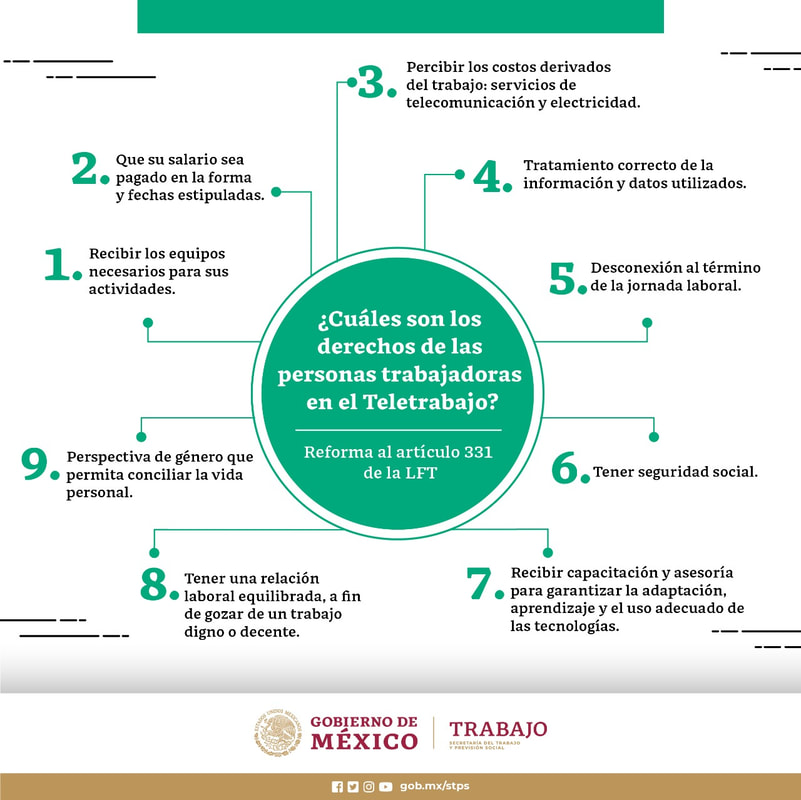|
The pandemic crisis has removed productive operations partially or totally to our homes since March 2020. The Competitive Intelligence Unit (CIU) forecasted that 70% of Mexican work activity could be transferred at home. At that time, only 2 companies out of 10 were willing to change their habits. However, throughout the year common opinion has evolved and home office has been more considered. Working in safety now is essential and suppose to adapt the way we work. In 2020, the number of Mexican companies sending their employees home has increased from 39% up to 68%, putting the country the first in Latin America to support it. Consequences A lot of companies were not prepared for the transition to remote working. According to the Ministry of Labor and Social Security, 70% of work activities could be carried out remotely based on the use of ICT but only 20% were ready to implement it. Why that? A high number of companies were not able to offer the necessary technological help for their employees and could not furnish them with proper equipment –internet connection, computer, etc. 80% of Mexican employees do not receive any technological support of their company to do home office. Another issue is located in the risk of information leakage. The State of Application Services study claims that 81% of IT companies in Latin America report that security services are their top priority, and home networks are unlikely to have the same protections as business internet connections, not to mention public networks often used by workers. With working away from the office, data is often manipulated from personal devices that for most cases have minor security measures. Not to mention public file-sharing platforms compromising security information. A new regulation To face the issues encountered last year and to have the best working at distance conditions possible, in January 2021 México approved a series of reforms to the Federal Labor Law. The provisions are for workers who maintain more than 40% of their time activities at home or remoting from the office. The article 311 incorporates now a chapter on working at distance. It is now required that a writing contract must be established to know the modalities of teleworking and a chapter dedicated to home office must be incorporated in the internal rules of work. Now employers must furnish employees with the necessary equipment such as working chair, partial payment of the use of electricity, internet services and so on. Employers also have to implement mechanisms that protect the security of information, personal data and guarantee the right to privacy of workers, respecting the applicable legal framework regarding the protection of personal data. On their side, employees have the obligation to take care of the furnished equipment and respect the data protection policies and mechanisms used in the performance of their activities, as well as the restrictions on their use and storage. To know more about the new regulation: https://www.gob.mx/stps/prensa/entra-en-vigor-reforma-que-regula-el-teletrabajo-en-mexico
The reform wants employers to have a greater productivity benefit, lower overheads, and access to a larger, more diverse, motivated, and skilled workforce. But overall, remoting work can never work without trust. It is a fundamental element for teleworking, because if there is not, the whole structure collapses. How to maintain trust doing home office? Working requires trust and even more at distance. To maintain trust, a system of attendance can be integrated into the company. Motum from Ingressio en la nube is a new app with biometric technology to register attendance from mobile devices. All the necessary information is available instantaneously and always online. Motum registers working hours and meals at various points thanks to facial recognition, fingerprint or with password. Records are secured and can be managed by employers. Motum is the perfect app for home office management and for all sizes of company, maintaining trust and increasing motivation so productivity. For more information, check our website or follow us on our social networks. What’s next? The Covid-19 pandemic affected our way of working and home office became a need that is most likely to stay. According to Oxford Business Group, 48.5% of Mexican companies that incorporated remote work will maintain it more than one day a week, and a quarter will adopt it permanently. A tendency that will be firmly established in our working habits... References:
Charlotte Luque Soy una francesa de 25 años y estudio a la Universidad La Salle, Ciudad de México en nivel Maestría en el programa MIEX especializado en negocios internacionales. Hago parte de la empresa Ingressio como becaria en digital marketing para 6 meses.
0 Comentarios
|
AutoresKelly Quijandria Archivos
Marzo 2021
|
CorporativoIngressio México S.A. de C.V. World Trade Center Montecito 38 Piso 20 of. 26 Col. Nápoles 03810, CDMX, México
Contácto |
|
|
Derechos Reservados Ingressio México S.A. de C.V. Consulta aquí nuestro aviso de privacidad. |





 Fuente RSS
Fuente RSS



